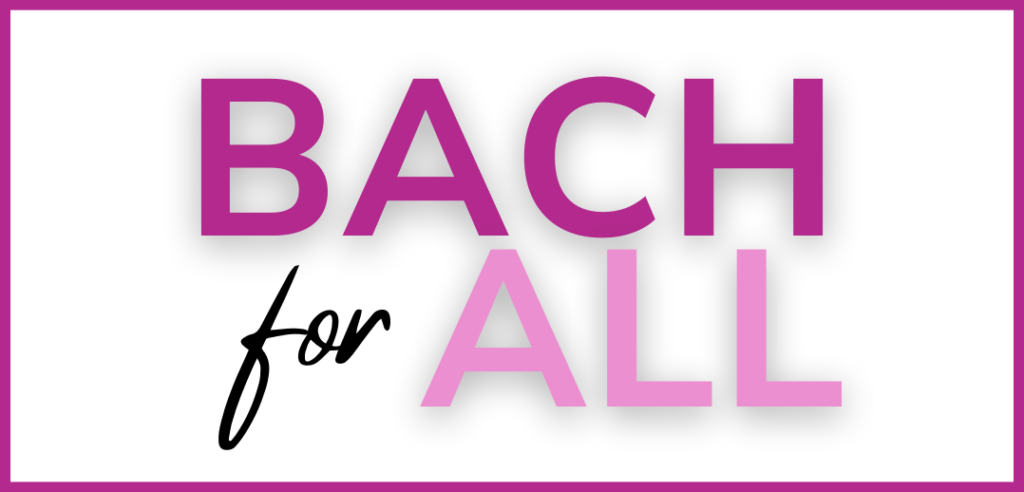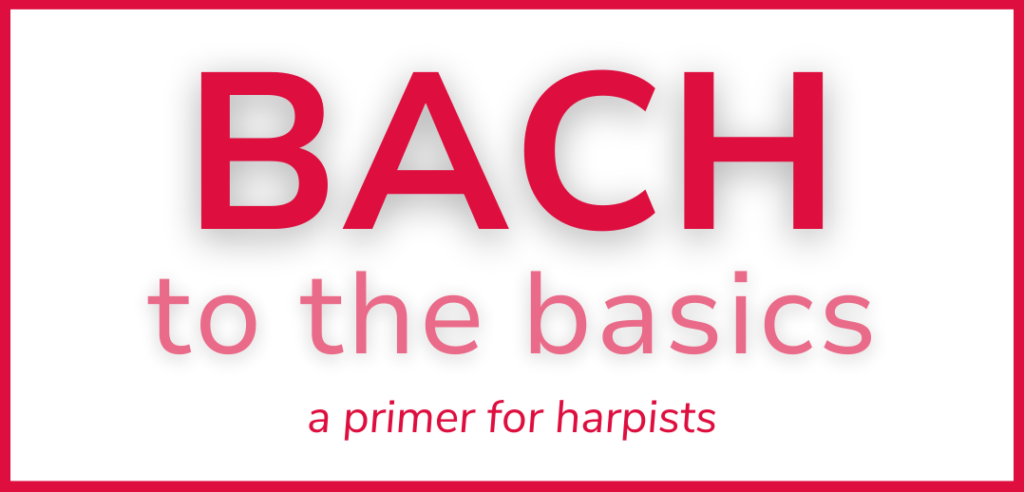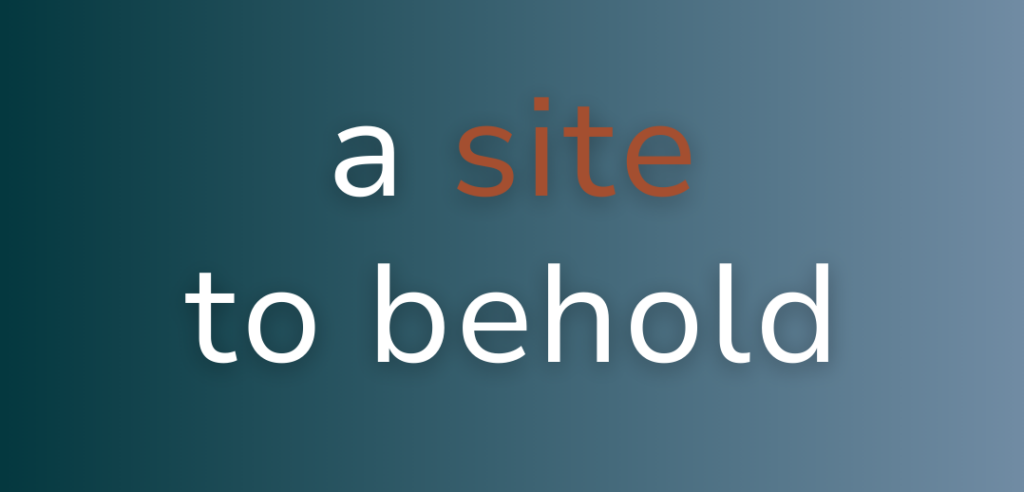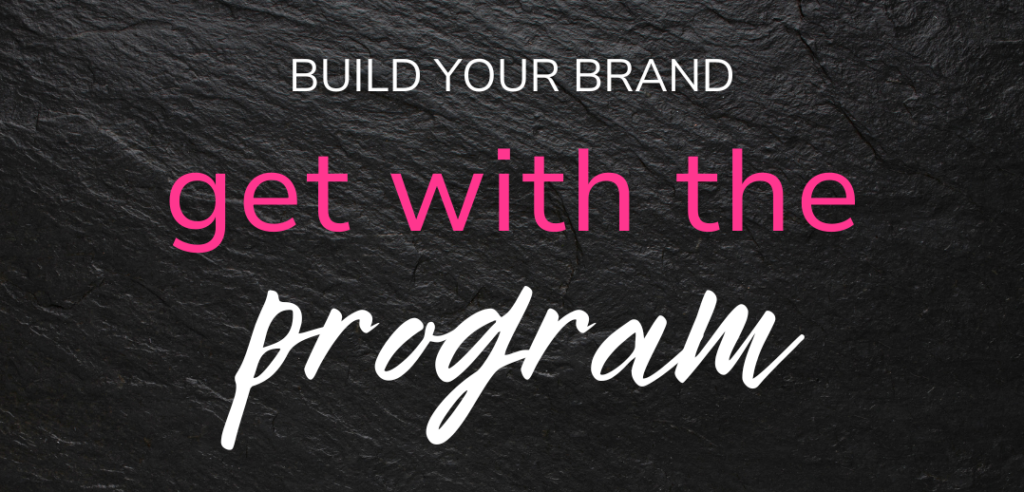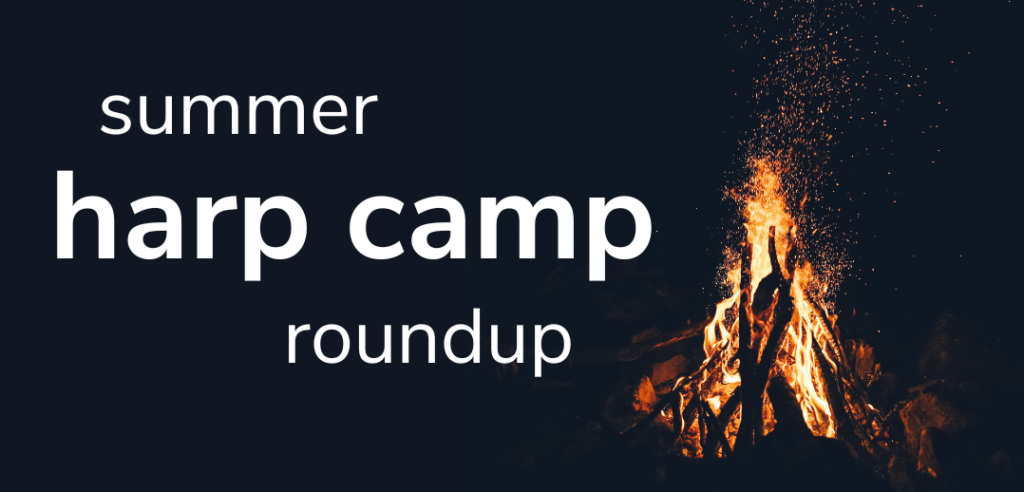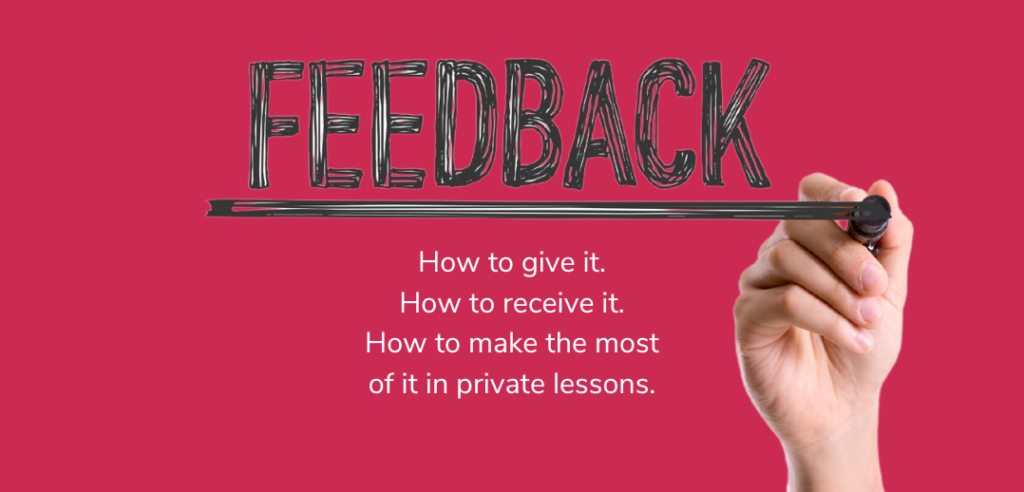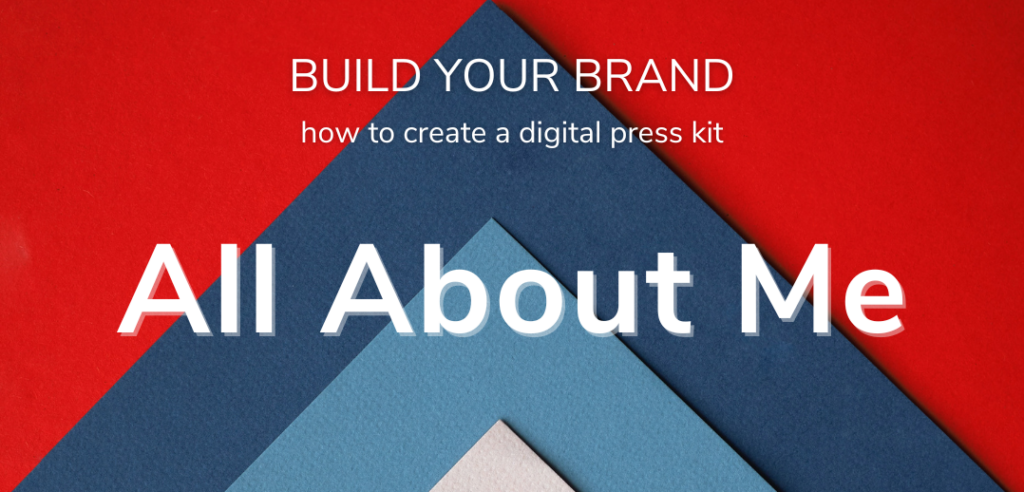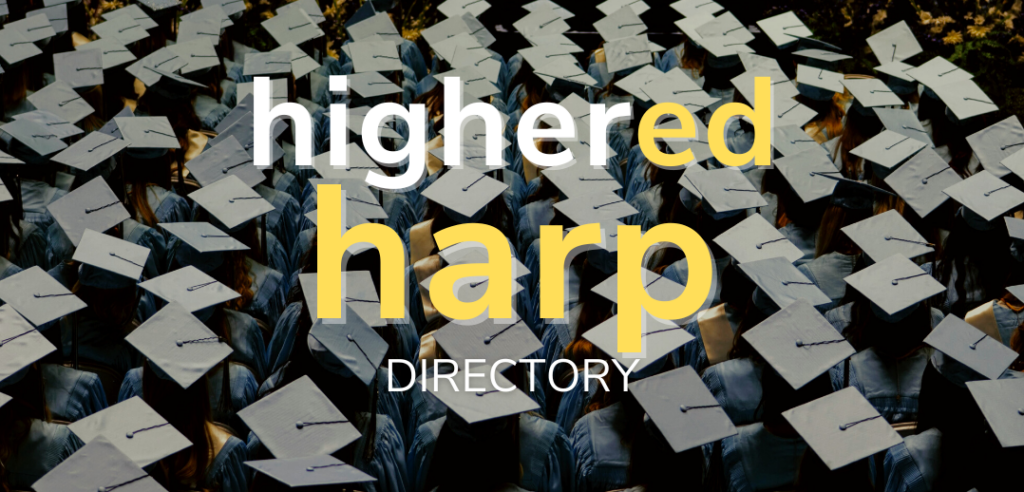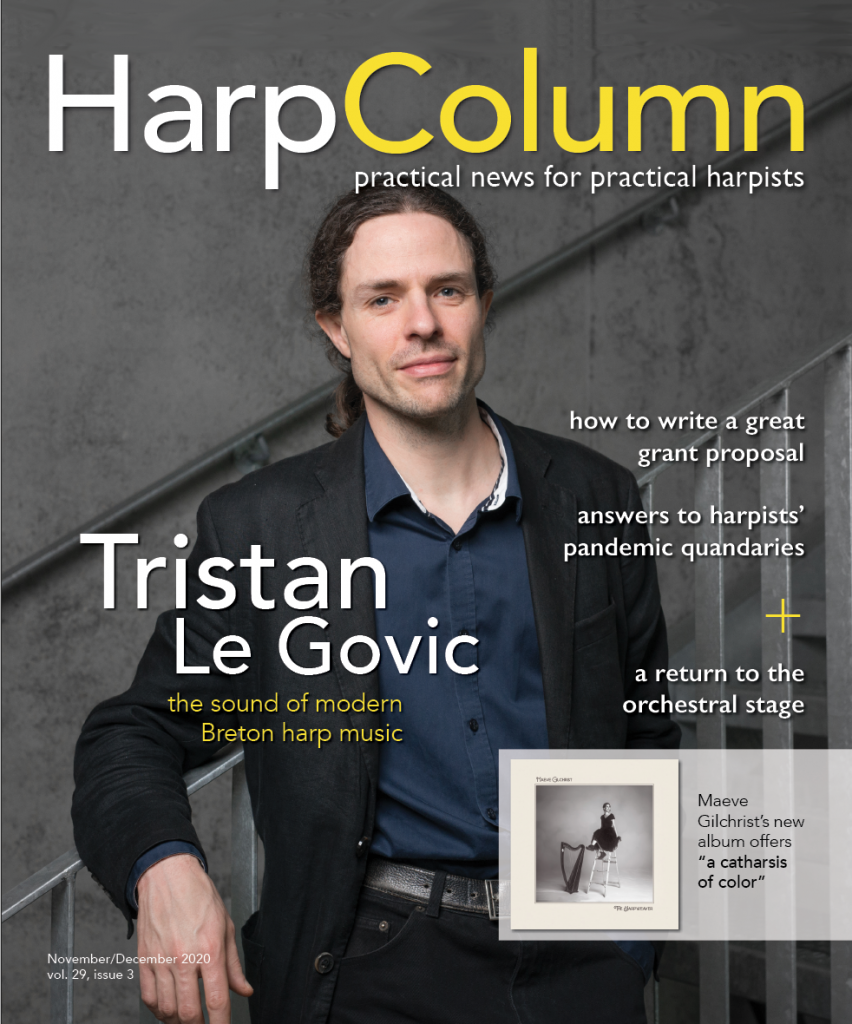Pandemic life is full of moving targets and unprecedented situations. Nine months in, there is almost no aspect of life that hasn’t presented a COVID question you’ve had to wrestle with.
Harp life is no exception. The pandemic has disrupted every harpist’s status quo to some extent. In some cases, the disruption actually resulted in something positive (see Lockdown Victories). In other cases, the closures and pandemic-related restrictions created a steady stream of new questions and quandaries for harpists to figure out.
Teaching
We talked to several harp teachers around the U.S. to see how they are handling some new situations in their studios that have arisen this fall. Chicago-based harp teacher Janelle Lake is teaching half of her students online and half in person. Erin Wood of Lawrence, Kansas, is teaching mostly online with a few in-person students. Hope Cowan is teaching online only this fall in Houston, Texas.

COVID QUANDARY: Should I be charging the same for virtual lessons as I do for in-person lessons?
“As harp teachers, we are paid for our creativity, guidance, encouragement, time, knowledge, connections, and expertise. We should absolutely charge the same for virtual lessons.” —Janelle Lake
“Unless your in-person lesson charge includes a fee for travel to the student’s home or another location, then your virtual lesson charge should be the same.” —Erin Wood
“I do charge the same, as it’s the same amount of time and work for the harp teacher.” —Hope Cowan
COVID QUANDARY: How should I handle missed in-person lessons during COVID?
“My teaching has been 100 percent virtual since March, but when I do return to in-person lessons, I plan to allow students to make up, go virtual, or roll lesson fees over if they are sick. I don’t want to incentivize students or parents to come to lessons if they are at all sick, so I think that flexibility is important right now.” —Hope Cowan
“I emphasize that if a student or family member is experiencing any symptoms or has recently traveled, they should not do an in-person lesson and can do a virtual lesson or reschedule. If your cancellation/rescheduling policies are overly strict, then people may be more likely to come to a lesson when they shouldn’t. Be flexible if possible.” —Erin Wood
“I handle missed in-person lessons the same way I did before COVID. Students have the opportunity to take a virtual lesson if they are contagious or simply more comfortable virtually that day. Payment is still required prior to the lesson. If the student switches to virtual last minute, I might have to use the first few minutes of their lesson to email them a worksheet or a piece of music. But that’s not much different than the amount of time it normally takes to wash their hands or take their shoes off for an in-person lesson. The only exception to the 24-hour cancellation policy is when there is a death in the family.” —Janelle Lake
COVID QUANDARY: Is there anything in particular I should update in my studio policies during COVID?
“During the beginning of COVID, I changed my policy to allow a few lessons to transfer between quarters as we didn’t realize that the pandemic would continue this long. As we all adapted (I got a professional Zoom account and have a day-long meeting set up to promote a more studio-like atmosphere), I went back to my old policy. Not allowing lessons to transfer between quarters saved my sanity by helping my financial budgeting, student accountability, lesson planning, etcetera.” —Janelle Lake
“I am definitely being more flexible about scheduling right now. I understand that families are dealing with shifting work and school schedules that make it difficult for them to plan ahead. Fortunately, virtual lessons are much easier to reschedule since driving isn’t an issue.” —Hope Cowan
“It would be wise to have students sign a release of liability waiver if they are taking in-person lessons.” —Erin Wood
COVID QUANDARY: How do I know when it is safe to go back to teaching in-person lessons?
“It may be a while before it is truly safe to teach in person. Everyone must assess their own risk factors and comfort level. This has lasted much longer than we expected it to, and we have all lost students because of it.” —Erin Wood
“Everyone’s personal appetite for risk will look different. Mental health—both mine and the students’—plays a huge role in my decision to allow some students to come for in-person lessons. We wear masks, wash hands and clean shared materials often, rotate which harp is used, open the windows when weather allows, and try to sit across the room at different harps. Some students may always prefer virtual lessons as the commute in Chicago can be brutally stressful. My goal is connection through harp music in ways that make everyone feel safe.” —Janelle Lake
“For me personally, I am watching local case numbers closely, keeping communication open with my students and their parents, and taking it one month at a time. I am grateful that virtual lessons allow me to be cautious, while still ensuring that students make progress in their harp studies.” —Hope Cowan
Gigging
Navigating gig life amid the pandemic can feel like you’re trying to find your way through a minefield blindfolded. Not only are there financial and contractual questions, but there are also very real health concerns to consider. We asked three active freelancers to weigh in with their advice—Joy Slavens of Laurel, Delaware, Stephanie Sussmeier of Galloway, New Jersey, and Lisa Handman of Alpharetta, Georgia.

COVID QUANDARY: How should I handle deposits for weddings and other events that get canceled because of COVID?
“Pre-pandemic deposits would be refunded while deposits for post pandemic events would not, because the client knows the risk of unpredictable circumstances and I don’t want to promote a new precedent for the future.” —Joy Slavens
Force majeure
Unforeseeable circumstances beyond anyone’s control that prevent someone from fulfilling a contract. If a harpist has a force majeure clause in their contract for a gig, then both the harpist and client are released from liability or obligation due to the unforeseen circumstance—in this case the coronavirus pandemic. Often, a force majeure clause doesn’t completely release the parties from obligations, but just puts off the obligation for the duration of the force majeure.
“It’s understandable to refund deposits paid on weddings booked before COVID. I know some harpists have opted to hold onto the deposit and transfer it to the new wedding date as many harpists did not have a force majeure clause in their contract. However, for weddings booked post-COVID, I find it acceptable to keep deposits for any cancellations, adding a clause in the contract stating such so the client is aware.” —Stephanie Sussmeier
“When the cancellations and postponements started rolling in as COVID-19 hit, I offered my clients the ability to rebook for up to a year from the original date, without any additional fees, as long as I was available on their new date. If I was not, I gave them the option of using my services for another type of event as well. Events that were booked after the pandemic will have a rebooking fee of $50 to $100, depending upon the new date (e.g. moving from a Friday night to a Saturday night in May will be an additional $100). —Lisa Handman
COVID QUANDARY: What should I do if I book a gig with the understanding that there will be certain COVID protocols in place, but when I show up to the gig, they are not?
“Make sure to have stipulations in the contract that if COVID protocols are not met, the harpist has the right to refuse to perform and shall be paid in full, no refunds. This is one reason it’s important to have final payment a week or two before the event, not the day of. I’d also make sure there’s a written understanding that the harpist reserves the right to wear a mask when performing, etc.” —Stephanie Sussmeier
“I would fulfill my obligation as safely as possible: masked, socially distanced (a safe location if possible), and strict adherence to contracted times. I would not include any extra playing.” —Joy Slavens
“I do have a new clause in my contract that requires social distancing. I try and get as much information as possible up front about the event so there is no misunderstanding. I have had occasions where I have had to ask people to back up in gigs. The worst culprits are the photographers, in my experience. I have actually gotten up from the harp and moved away if someone gets too close to me. I do post a social distancing sign on the back of my music stand, and even have stanchions to keep the audience at a distance, if needed. I was playing a high tea gig a few days ago, and a woman came up within six feet while I was performing. I politely asked her to back up, and she just stood there and said she wanted to ask a question. She wanted to know what harp music looked like, and instead of backing up and waiting for me to answer, she flipped around my music stand! I then had to sanitize the music stand, and needless to say, was not happy. I decided to stay in the same room during my break, because this was just the type of person that would try to play my harp when I wasn’t there (we all know the type). I guess I was not paying attention, because when I came back from break, there was a note on my music stand with an apology.” —Lisa Handman
COVID QUANDARY: Should I charge differently for live-streamed weddings or concerts than I do for live events?
“I am charging $50 less for a live-stream performance; assuming there are not many special requirements. Personally, I really enjoy not having to move a harp, drive, set up, etcetera. I hope these types of events continue after the pandemic.” —Lisa Handman
“Charge the same for both types of performances. As the harpist, you are still preparing, performing, and don’t forget the extra time it takes to set up the technology that is needed to accommodate a successful livestream performance.” —Stephanie Sussmeier
“Preparation is the same for in-person or live-stream gigs, therefore fees remain the same, except for travel expenses.” —Joy Slavens
COVID QUANDARY: Should I raise my rates to help make up for lost income during the pandemic?
“I have kept my rates the same, for now. I will probably raise them in 2021. With all of the rescheduled events in 2021, in addition to new gigs, I am hoping there will be plenty of work to go around.” —Lisa Handman
“Due to the COVID-19 economy, I have not raised my rates. I’m thrilled to receive calls for gigs!” —Joy Slavens
“I was lucky that I did not lose that many gigs to COVID (so far), so my rates still remain the same. I would be hesitant to raise them without consulting other local harpists first to see their thoughts—this will also avoid unintentionally under-cutting. I’ve also seen a few comments from gigging harpists where they are getting asked to lower their price to accommodate the tightened wedding budgets, which is just crazy!” —Stephanie Sussmeier
Recording and livestreaming
The pandemic has forced musicians to become home recording and livestreaming experts. While these skills will serve performers long after we return to our familiar concert venues, the technical end of recording and streaming presents lots of challenges. We asked three harpists with loads of experience in this area to give us some advice—Amy Turk of the United Kingdom, New York City harpist Grace Cloutier, and Amy Ahn of Los Angeles.

COVID QUANDARY: Do I need a special microphone or equipment to record my own performances at home during COVID?
“While phone camera audio is fine for a casual clip, there are many mics available now that will sound better. The cheapest option would be to use a stereo recorder, such as the Zoom series. I have a Tascam DR-05 recorder and it cost less than $100. There are also affordable USB mics you can plug straight into a computer or laptop.” —Amy Turk
“I chose to broadcast all of my online performances from my kitchen, which has good, natural acoustics with wooden floors and high ceilings. I wanted to find an organic route which didn’t require the use of the usual digital amplification.” —Grace Cloutier
“It really does not take much to become your own recording engineer, daunting as it may seem. You’ll want to invest in a decent condenser microphone (dynamic mics are not as sensitive to the timbre of the harp), a mic stand, an interface (a widget that allows you to adjust the sound and frequency of your mic before it enters your computer), and a ring light for good lighting and good measure. Of course you can get fancier if you want to, but these are the basics.” —Amy Ahn
COVID QUANDARY: How can I make money by livestreaming my performances?
“Thanks to modern day patrons of music, we have platforms such as Groupmuse (for instrumental/classical music) and Sofar Sounds (for singer-songwriter/jazz musicians) that give performers an opportunity to perform virtually for pay. The plus is that these platforms find your audience for you.” —Amy Ahn
“The easiest way to charge is to link to a PayPal account. That way you can ticket your concert (e.g. with a Zoom link you send out to attendees who have paid). You can also use a Paypal link as a “tip jar” for watchers on Facebook Live, Instagram, or YouTube. Plenty of musicians also stream live on Twitch now, too. Be careful to cover any costs and secure rights as necessary if you are playing copyrighted music in your performances.” —Amy Turk
“There are many ways, but the main route I chose was to curate a weekly online concert series. For these performances, I had attached a link of where one had the option to donate to the Arts.” —Grace Cloutier
COVID QUANDARY: What is the best way to get audiences for my recorded performances—whether they are livestreamed or recorded?
“After using all the mainstream platforms, I have found that Facebook Live is what works best and is the most reliable platform (as long as one has reliable wi-fi connection). I would let others know ahead of time via social media advertising all relevant information in a concise and friendly manner.” —Grace Cloutier
“Where do you have the biggest following on social media? Start there. If you are new to some platforms and have a smaller audience, you may need to use word of mouth from your friends and direct contacts to get the ball rolling—ask friends to share your posts! You can also tag other accounts, use hashtags strategically to increase your reach, and check when the day and time to post might be. There is plenty of information about this to be found through a quick Google search.”
—Amy Turk
“The question for this age! Several social media platforms such as Youtube and Twitch are wonderful ways to monetize your art and performance. They do, however, require a certain number of views and subscribers to become a monetization platform.” —Amy Ahn
COVID QUANDARY: How do you get mentally focused for an online performance when there is no live audience to play for?
“I have found that preparing for a virtual performance is similar to recording for an audition. My mental focus is always clear for a performance when I can trust that I put in the work to prepare for it. Great ways to prepare for an online concert are to record yourself playing your program as much as possible, perform for your family or friends via Facetime or Zoom, and most definitely dress the part.” —Amy Ahn
“It’s a tough one for sure, as it’s quite unnatural to perform through a screen, but I choose to treat it as I would any serious performance. Having the option of speaking more informally and reading live comments is both fun and a challenge to keep up with while focusing on the music at the same time.”
—Grace Cloutier
“Playing online (live or pre-recorded video) is just the same in many ways as playing to a live audience. Your mental “zone” should feel the same. Imagine you are doing a run through in a practice session, or to a teacher or peer, and follow your usual performing rituals. Once you’re into playing, it should just be you and the music in your focus, just like in a live setting—nothing else matters anyway until the music is complete!” —Amy Turk •







